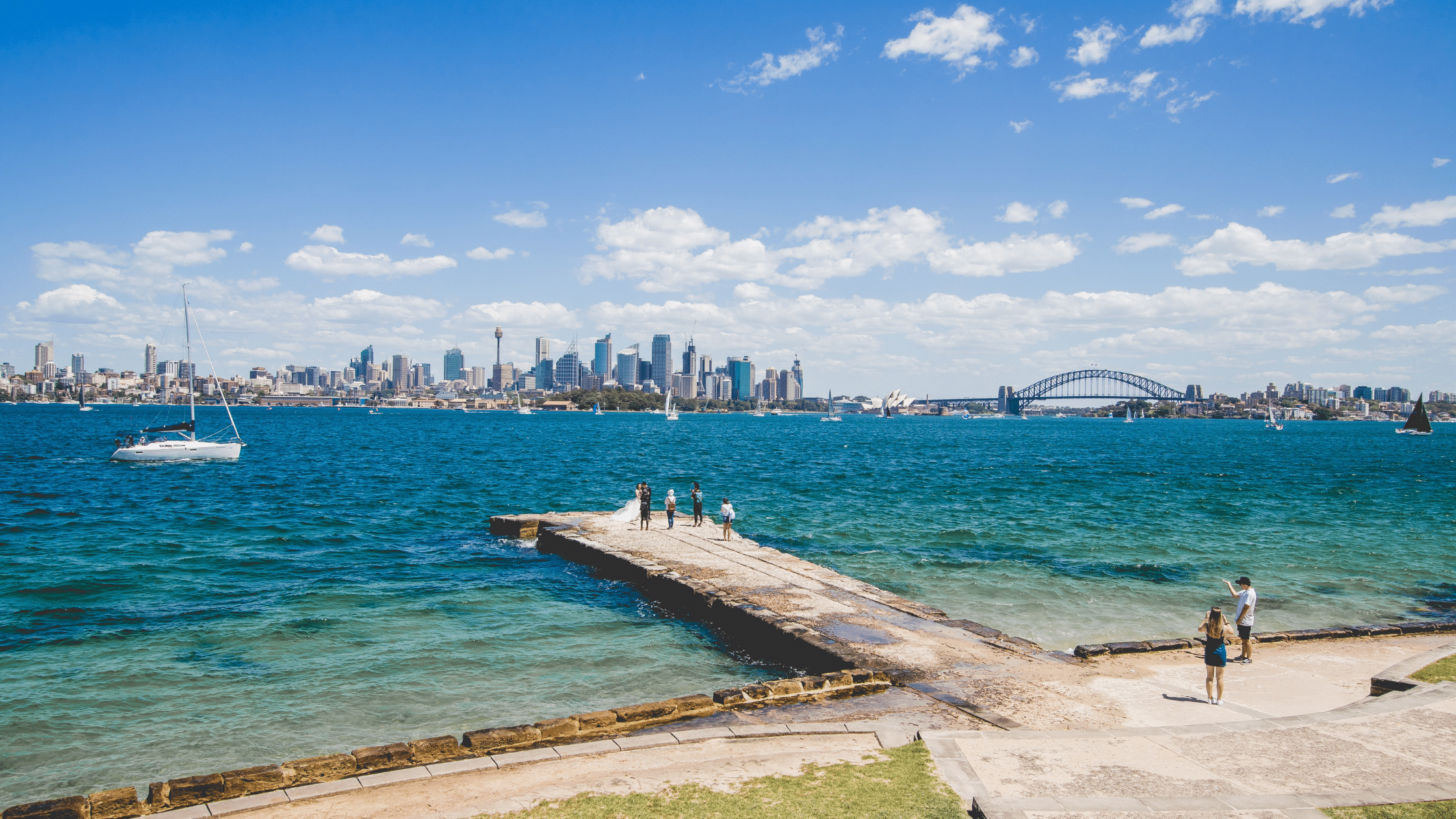We’re all so tied up in the virtual world that it’s easy to forget that we actually work and connect in a physical one. I do a lot of work with individual leaders and teams, but it’s usually theoretical. I wanted to change that. So, I created The Surfboat Challenge.
I’ve been part of a surfboat rowing crew for several years. It has taught me a lot about leadership, collaboration, courage, focus, goal-setting, persistence and the power of the team. The Surfboat Challenge allows teams to learn, grow and laugh together by becoming ‘Boaties’ for a day.
Below is ‘Leadership Lessons from a small boat’ – a piece I wrote a few years ago. It gives you an idea of the personal and team growth that comes from literally ‘pulling together’. If you are not part of a team, or can’t get to Sydney to sample the real thing, I hope this gives you a flavor of what it’s about.
Close your eyes. Imagine the smell of the ocean, the wind in your face and the thrill of the chase.
Leadership lessons from a small boat
It starts with getting out of your comfort zone
I spend a lot of time working alone. There’s no water-cooler conversation in a one-man leadership consultancy and it’s easy to become detached. Humans are social animals. We need social interaction to bring out our best selves. We also need to work out physically to combat the effects of our increasingly automated, virtual and power-assisted lives.
I discovered the perfect outlet in the sport of surfboat rowing. Surfboats are 7 metres-long and carry 4 rowers and a ‘sweep’, who steers, strategizes and ‘motivates’. We race in carnivals with 6 boats at a time competing in an out-and-back course of 800metres. I joined a Masters crew in early 2016 and learned quickly of the dangers, leaving my second carnival in an ambulance. On the wrong day this can be a tough sport. As anyone who has taken on the ocean knows, there’s only ever one winner. As an unknown poet wrote in a verse that graced the desk of President John F Kennedy:
Thy sea, O God, so great,
My boat so small,
Preparation counts
The ‘7P’s principle applies nowhere more than in a surfboat. ‘Proper Prior Planning Prevents Piss-Poor Performance’. Rowing is hard work. Many experts believe that Olympic rowers are the ultimate athletes. Whilst we don’t quite scale those heights, my crew trains 4 times a week and in January 2018 completed a 200km surfboat marathon. There’s a lot of hardware flying around and plenty of “don’t do that”, “stand there”, “go NOW!” stuff to learn. This preparation, awareness and discipline is exactly the stuff required of strong leadership teams.
All for one and one for all
Collaboration in teams is much-vaunted, but often little-seen. We’ve been taught to compete rather than collaborate. I do a lot of my mentoring work helping leaders to develop a genuinely collaborative intent and capability.
In a surfboat there’s no choice. It’s one of the ultimate collaborative experiences. The actions of one person will significantly disrupt the collective effort. A missed-stroke, poor timing or a delay in reacting to whatever the ocean is throwing up can result in anything from reduced boat speed to spectacular failure (read swimming!).
A marathon not a sprint
When I started rowing, I thought the event was a sprint. I pulled like a maniac out to the turning buoy ……… and then faded horribly, exhausted. I now know it is more like an 800 metre run. Effort must be measured, conserved and then expended at just the right time.
It’s the same with team performance. We can’t be incessantly running at full tilt. I remember a weekly sales meeting from years ago. Every Monday it was a ‘big week’. We had to smash targets. After a while I realized these were unachievable. The motivational speech was anything but …… yet, used sparingly, I don’t doubt it could have been effective.
A time to GO! and a time to wait
If the waves are big, the strategy must shift. The focus moves from progress to survival. Once the starting gun goes, we may get off the beach and then stop and hold position, waiting for a gap in the bigger ‘set’ waves.
Either side, competing crews may take a chance, rushing heroically into the oncoming breakers. It’s easy to feel we are missing out, that we’ve made a mistake. Sometimes they get through, but, more often, they get stopped by the first wave and then – stuck in the wrong place at the wrong time – smashed by the second. Having waited, we then choose the right moment to ‘GO’, get through the break and carry on racing.
Leadership is not about moving forward unceasingly. Sometimes it’s knowing when to do nothing, to wait-out adverse conditions or allow earlier efforts to take effect. We rely on our sweep to call the shots (fortunately, as rowers face backwards, we can’t see what’s coming!). A great leader must demonstrate the same skills – based on deep market knowledge, good instinct and a comprehensive understanding of the teams’ capability.
Motivation comes in many forms
Above all, we’re in a race. The idea is to win, to expend every ounce of available energy just as the boat crosses the finishing line, surfing on a victory wave. That’s the aim anyway. Extracting said effort is an art-form. Again, the sweep drives everything. Strategies range from encouragement: “come on, we’re placed second, one boat-length back, give me 5 big ones”, to fear: “you better pull us onto this wave ‘cos that big one behind is gonna hit us up the arse if you don’t”.
As leaders, there IS a place for both the carrot and the stick!
Be part of something bigger than money or yourself
As important at the competition is, the thing I love even more about surfboat rowing is the people and community. These are ‘get-shit-done’ folk. It’s amazing to see an empty beach transformed within a couple of hours to a carnival of boats, tents, people and racing. It’s the kind of thing that would take a council several days and many hi-viz vests to ‘manage’.
There’s also a great sense of tradition and respect that unites crews ranging from under-19 male and females to gnarly old masters in their 70s. The love of the ocean and of the tradition of the sport is still strong. It’s seen at its finest when passing greats are honoured in a moving, oars-raised ceremony.
In 2019, that’s a rare and precious thing.
The Crusty Crew is off in pursuit of medal glory again for the upcoming season. We came 3rd in Australia in 2018/19. We’ve worked hard over the winter and are looking to go at least one better.
With a fair wind and special sauce, who would bet against us?
—
This article originally appeared on the author’s LinkedIn page. You may also visit his website, markhodgson.com.au, for more leadership articles.
Mark Hodgson helps motivated professionals to unlock their inner talents and create the successful and meaningful lives we all crave.
He comes from a corporate background holding senior roles in the UK, Australasia, Central Europe and Russia. Today, he is a leading thinker in Transformation and what it takes to thrive in complex times.
Mark has inspired large teams in commercial and not-for-profit businesses. A natural disruptor, he helps executives, entrepreneurs and business owners to build their personal brand and influence and is an expert in leading change.
His book, ‘Time to Shine: Adapting who you are and what you know to succeed in the ideas economy’ explains what we need to DO, BE and BUILD to show up as successful, fulfilled and authentic Influencers.
His second book, ‘Second Half Hero’, launches in 2020.
Mark is an Executive Coach, Author, Advisor and Keynote Speaker.
www.markhodgson.com.





















































